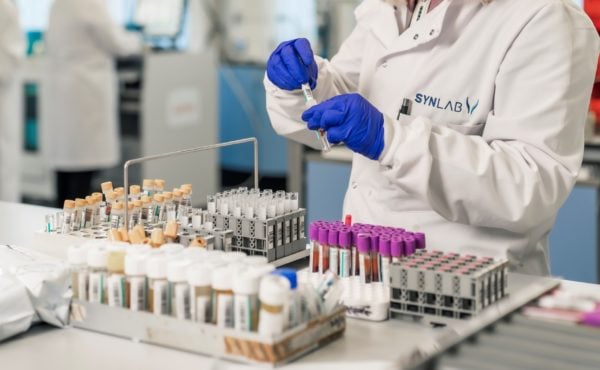Published: 22nd May 2019
As discussed in our last blog ‘Why Implement a Drug and Alcohol Policy?’ there are many reasons an organisation may have for implementing a policy. At SYNLAB Laboratory Services we know that every organisation is different and because of this who takes ownership of the policy within an organisation will differ depending on the organisation, its sector/industry, internal corporate structure and its business priorities.
For over 30 years, SYNLAB Laboratory Services has been a valued provider to a range of organisations (from global companies to small to medium enterprises), supporting them with implementing their workplace Drug and Alcohol Policies. We work in collaboration with departments across organisations and their professional advisers.
In this blog, we look at a best practice approach to implementing your Drug and Alcohol Policy. We discuss which departments within an organisation may wish to manage a policy (or take a role in its management) and set out our experience of a variety of different approaches.
Procurement
For organisations who are implementing a Drug and Alcohol Policy for the first time, or going out to tender to purchase services to support implementation of a new policy, the organisation’s procurement team will be likely to have initial ownership.
The procurement team will be responsible for appointing the right supplier to assist with writing the organisation’s policy. At the outset, the procurement team should, therefore, ensure that their organisation’s business requirements are clearly documented and defined in tender materials and that a thorough search and due diligence process is undertaken for potential suppliers. Following a successful bid or quotation, the procurement team will need to ensure that final contracts are signed and that key project milestones agreed with the supplier for policy implementation are met.
Procurement leads will often need to work with at least one or more additional departments within their organisation to appoint and contract with, the appropriate supplier. Those departments will be those which have an interest in the final policy and the organisation’s relationship with the successful supplier.
Human Resources
A company’s Drug and Alcohol Policy is often a HR Policy, managed and implemented by a HR team in collaboration with an organisation’s employment law advisers.
The Chartered Institute for Personnel Development (CIPD) describes HR as “helping an organisation to create value through its people.” While this includes recruitment, training, pay and reward schemes, well-being is also key and promoting employee health and well-being can lead to increased productivity and engagement while developing a culture where people are committed to achieving organisational success.
Having a clear approach to drug and alcohol use can be key to achieving HR and employer objectives. HR teams will also need to ensure that their Drug and Alcohol Policy complies with the General Data Protection Regulation 2016/679/Data Protection Act 2018 and associated guidance.
Health and Safety
According to Health and Safety Executive (HSE), the primary role of a Health and Safety representative is “to advise Directors and Managers on all safety, health and welfare matters to ensure an organisation complies with its statutory obligations.”
Accidents resulting from substance misuse can put the health and safety of an organisation’s customers, suppliers and employees at risk. A Drug and Alcohol Policy can therefore often be an essential Health & Safety Policy to ensure that such risks are mitigated and to demonstrate organisational accountability in the event of incidents arising.
Operations
Operations Managers set goals and objectives and establish policies for various departments in organisations. In cooperation with other managers, they help establish procedures and put them into effect.
In our experience, where supported by a supplier with proven experience in policy writing; ownership of a Drug and Alcohol Policy can be managed effectively by an Operations Manager/Director. We have built long-lasting relationships with Operations Managers across a wide range of organisations and are well placed to provide them with support in this role.
Occupational Health
Occupational health departments are responsible for the physical and mental well-being of employees in the workplace, as well as preventing work-related illness or injury by monitoring the health of the workforce.
A Drug and Alcohol Policy can be successfully utilised by Occupational health departments, as part of their responsibility to reduce work related accidents resulting from drugs and/or alcohol misuse. Our drug and alcohol testing services are also a key resource for occupational health teams in proactive identification of drug/alcohol issues.
Conclusion
So which department should own and implement a Drug and Alcohol Policy? In conclusion, there’s no right or wrong answer here. All of the departments and individuals we have described above can play a pivotal role in safeguarding an organisation and its people.
While one department may manage a policy and the relationship with the policy writing and testing partner, everyone in the business owns the policy. Once a policy is in place it’s up to the Senior Management team to effectively communicate “the why and the how” to everyone and to ensure that they obtain appropriate professional advice. Likewise, it’s important the policy is reviewed regularly to ensure it is up to date and continues to meet business needs and legal requirements.
Staff responsible for onsite testing need to ensure they fully understand and regularly refresh their skills through training.
Finally, employees need to be aware of the risks associated with drugs and alcohol in the workplace and work with the organisation to ensure both they (and their colleagues) are delivering their role responsibly and safely.
Are you planning to implement a Drug and Alcohol Policy or looking for a partner to help you and your advisers review an existing one? You can call us on 01873 856688 or, you can email us at [email protected] to find out more about the services we offer.




